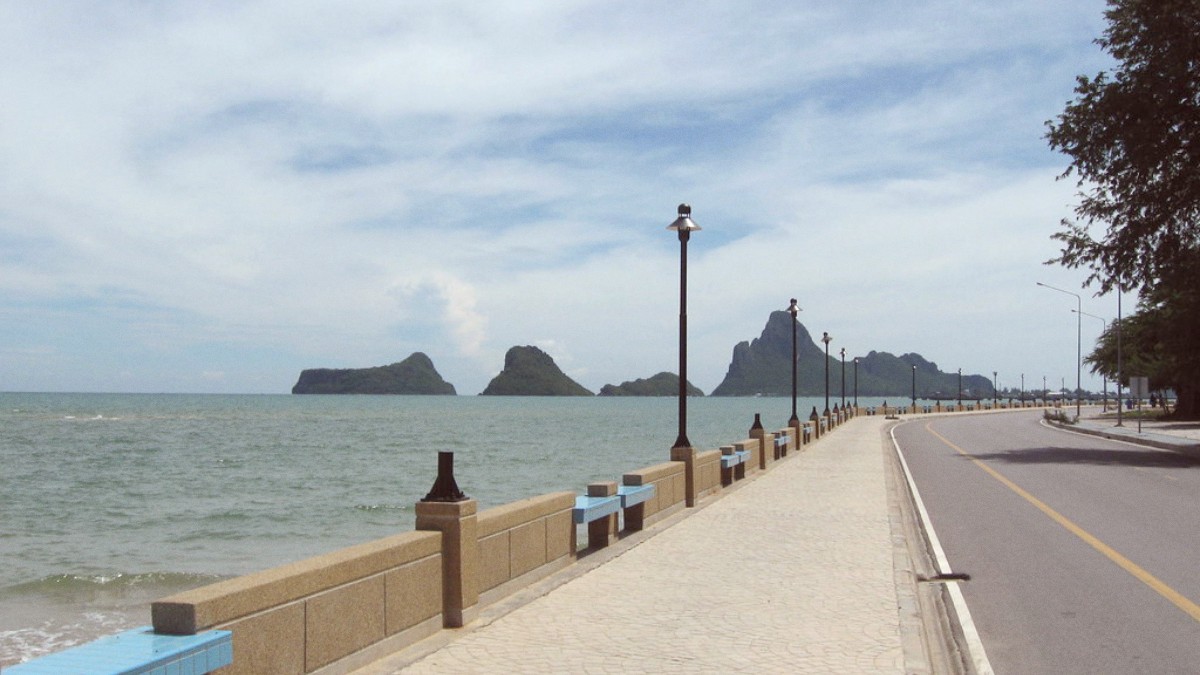
Upper Southern Gulf, Thailand
Khao Sam Roi Yot National Park and Hat Wanakon National Park are designated protected areas. Respect all park rules during your visit.
Thailand faces challenges with plastic waste. Minimize single-use plastics and dispose of waste responsibly.
Water resources can be strained. Be mindful of your water usage by taking shorter showers and turning off taps.
Protecting Prachuap Khiri Khan's natural environment is important for its long-term appeal. Your travel choices make a difference.
When visiting national parks, adhere strictly to all park rules to protect fragile ecosystems and wildlife.
Thailand faces challenges with plastic waste. Minimize your use of single-use plastics and embrace reusable items.
Water resources can be strained, especially during dry seasons. Be mindful of your water usage during your trip.
Consider offsetting your flight emissions and choosing accommodations and tour operators that highlight sustainable practices.
Look for products labeled as fair trade or directly support local artisans at markets like Cicada Market.
Visit The Rainforest SiteCarry reusable items (water bottles, bags, utensils) to minimize your waste footprint.
Explore Package Free ShopAlways carry your trash with you until you find an appropriate bin. Do not litter, especially in natural areas or on beaches.
Cultural sensitivity ensures your interactions are positive and respectful, contributing to a harmonious travel experience in Prachuap Khiri Khan.
Support local artisans and cultural performances that genuinely try to preserve Thai heritage, not just for tourist entertainment.
Thais value composure. Avoid raising your voice or showing anger in public. Keep a calm demeanor ("jai yen yen").
Always ask for permission before taking photos of people, especially children, monks, or individuals in rural settings.
Modesty and respect are when visiting sacred sites. Observe how locals behave and try to emulate their respectful actions.
Avoid sensitive topics.
Show utmost respect. It is illegal to insult the monarchy.
Head is sacred; feet are lowest. Do not touch heads or point feet.
Minimize public displays of affection; avoid losing temper.
Observe how locals behave and try to emulate their respectful actions. A genuine smile and polite demeanor can smooth over any cultural misunderstandings.
Traveling responsibly also means making choices that have a positive economic impact on the local community. Your spending directly supports livelihoods.
Seek out and support tours led by local guides for direct community benefit.
Visit small villages or engage in homestay experiences to distribute tourism income widely.
Research organizations that empower local people through tourism, promoting fair wages and sustainable development.
Do not give money to beggars, especially children. Donate to reputable local charities instead.
Avoid activities that exploit animals like elephant riding or tiger temples. Choose ethical sanctuaries.
Choose responsible wildlife viewing tours, like elephant viewing at Kui Buri National Park.